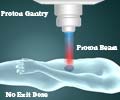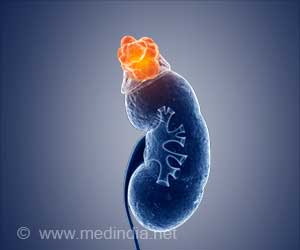Chinese traditional ink called Hu-Kaiwen ink has similar properties to the nanomaterials used in Photothermal therapy (PTT) used in cancer treatment.
Chinese traditional ink called
Hu-Kaiwen ink could noninvasively and effectively treat cancer cells that spread, or metastasize, to lymph nodes. According to a study reported in
ACS Omega, this Chinese ink has similar properties to the nanomaterials used in Photothermal therapy (PTT).//
As cancer cells leave a tumor, they frequently make their way to lymph nodes, which are part of the immune system. In this case, the main treatment option is surgery, but this can result in complications.
Photothermal therapy (PTT) is an emerging noninvasive treatment option in which nanomaterials are injected and accumulate in cancer cells. A laser heats up the nanomaterials, and this heat kills the cells. Many of these nanomaterials are expensive, difficult-to-make and toxic. However, a traditional Chinese ink called Hu-Kaiwen ink (Hu-ink) has similar properties to the nanomaterials used in PTT. For example, they are the same color, and are both carbon-based and stable in water. So Wuli Yang and colleagues wanted to see if Hu-ink could be a good alternative material for PTT.
TOP INSIGHT
A traditional Chinese ink called Hu-ink has similar properties to the nanomaterials used in Photothermal therapy (PTT) which is used for cancer treatment.
The researchers analyzed Hu-ink and found that it consists of nanoparticles and thin layers of carbon. When Hu-ink was heated with a laser, its temperature rose by 131 degrees Fahrenheit, much higher than current nanomaterials. Under PPT conditions, the Hu-ink killed cancer cells in a laboratory dish, but under normal conditions, the ink was non-toxic. This was also the scenario observed in mice with tumors. The researchers also noted that Hu-ink could act as a probe to locate tumors and metastases because it absorbs near-infrared light, which goes through skin.
Source-Eurekalert

 MEDINDIA
MEDINDIA




 Email
Email










